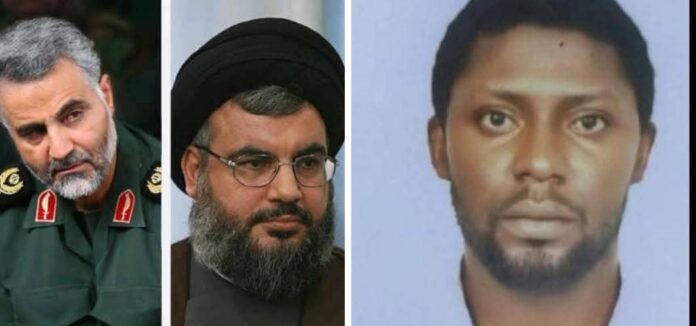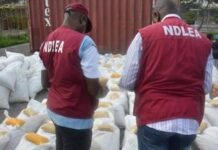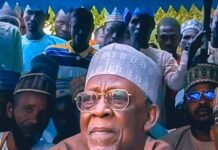Soleimani and Nasrallah: The pillars of Syria’s resistance and the aftermath of their loss, by Ahmad Shuaibu Isa
General Qasim Soleimani and Hassan Nasrallah were among the most influential figures in the Middle East, their leadership playing a pivotal role in shaping the region’s resistance against foreign intervention. During Syria’s protracted war, their efforts safeguarded the Assad regime against a multitude of threats. These two leaders, deeply revered by their supporters, not only directed military strategies but also embodied a vision of defiance against external domination. Their deaths marked a turning point for Syria, exposing vulnerabilities that had previously been masked by their leadership.
Strategic Roles in Syria’s Defence
The Syrian conflict, which erupted in 2011, escalated into a devastating war with regional and international implications. Foreign-backed insurgent groups, including those supported by the U.S. and Israel, sought to dismantle the Assad regime. Among these forces were radical Wahhabi Takfiri groups like ISIS and Al-Qaeda affiliates, whose ideologies threatened Syria’s sovereignty and stability.
General Qasim Soleimani, as commander of Iran’s Quds Force, identified Syria as a linchpin in Iran’s strategic vision for the Middle East. Syria served as a vital ally and a conduit for Iranian influence in the Levant, connecting Tehran to Hezbollah in Lebanon. Soleimani’s leadership ensured that the Assad regime received the military aid, training, and logistical support necessary to counter foreign-backed insurgents. His coordination of resistance forces, including militias from Iraq, Afghanistan, and Lebanon, played a critical role in regaining key territories from opposition forces.
Hassan Nasrallah, the Secretary-General of Hezbollah, was equally indispensable in Syria’s defence. Under his command, Hezbollah forces were deployed to strategic locations, including Damascus and the country’s border regions. Hezbollah’s fighters brought not only manpower but also military expertise, helping to repel opposition forces that threatened to overrun government-controlled areas. Nasrallah’s unwavering support solidified Syria’s alliance with Hezbollah, creating a united front against external interference.
The Turning Point: Their Martyrdom
The assassination of General Soleimani in a U.S. drone strike in January 2020 was a seismic event that reverberated across the region. Soleimani was not only a military strategist but also a symbol of resistance, his presence a unifying force for allied militias and governments. His death left a leadership void that Iran struggled to fill, impairing its ability to coordinate efforts in Syria.
Hassan Nasrallah’s influence has also diminished over time, partly due to the changing dynamics of the conflict and the challenges facing Hezbollah. While the organisation remains a formidable force, the absence of Nasrallah’s direct involvement in Syria’s operations has disrupted its strategic cohesion. Together, these losses have significantly weakened Syria’s defences, leaving the Assad regime more vulnerable to both internal and external threats.
The Fragility of Syria’s Stability
Syria’s post-war stability remains precarious. Although the Assad regime has regained control over much of the country, it operates in a highly complex geopolitical environment. Foreign powers, including the U.S., Russia, Turkey, and Israel, continue to exert influence, often pursuing conflicting agendas.
Internally, Syria faces significant challenges. The country’s economy is in ruins, its infrastructure devastated by years of conflict. International sanctions further exacerbate the humanitarian crisis, making reconstruction efforts nearly impossible without foreign assistance. Political fragmentation also poses a significant hurdle, with various factions controlling different regions, including Kurdish-led forces in the northeast and opposition groups in the northwest.
The Road Ahead for Syria
In the wake of Soleimani and Nasrallah’s martyrdom, Syria must navigate a path forward in a drastically altered landscape. Diplomacy will be crucial as the Assad regime seeks to rebuild ties with regional powers, including Arab states and Western nations. These engagements could mark a shift away from Syria’s traditional alliances with Iran and Russia, particularly as the regime seeks to attract economic aid and investment for reconstruction.
Rebuilding Syria’s economy, especially its vital oil sector, will require careful negotiations with international stakeholders. However, these efforts will be complicated by ongoing sanctions and the broader political context of the region. Internally, achieving political reconciliation and creating a more inclusive government will be essential for long-term stability.
Relations with neighbouring Turkey will also play a critical role. While tensions over issues such as Kurdish autonomy persist, there is potential for improved relations if both sides adopt a pragmatic approach. The involvement of global powers such as China and regional players like Iran and Russia will further shape Syria’s trajectory.
Conclusion
The legacies of General Qasim Soleimani and Hassan Nasrallah highlight their monumental contributions to Syria’s survival during one of its darkest periods. Their leadership was instrumental in resisting foreign-backed insurgents and preserving the Assad regime. However, their absence has exposed the fragility of Syria’s post-war stability, leaving the country at a critical crossroads.
As Syria moves forward, its ability to rebuild and achieve stability will depend on forging internal unity, engaging with regional and international powers, and addressing the profound challenges that continue to threaten its recovery. Soleimani and Nasrallah’s sacrifices remain etched in the region’s history, serving as a reminder of the enduring struggle for sovereignty and stability in the Middle East.
By Ahmad Shuaibu Isa
Email: ahmadeesir214@gmail.com
Follow the Neptune Prime channel on WhatsApp:
Do you have breaking news, interview request, opinion, suggestion, or want your event covered? Email us at neptuneprime2233@gmail.com





